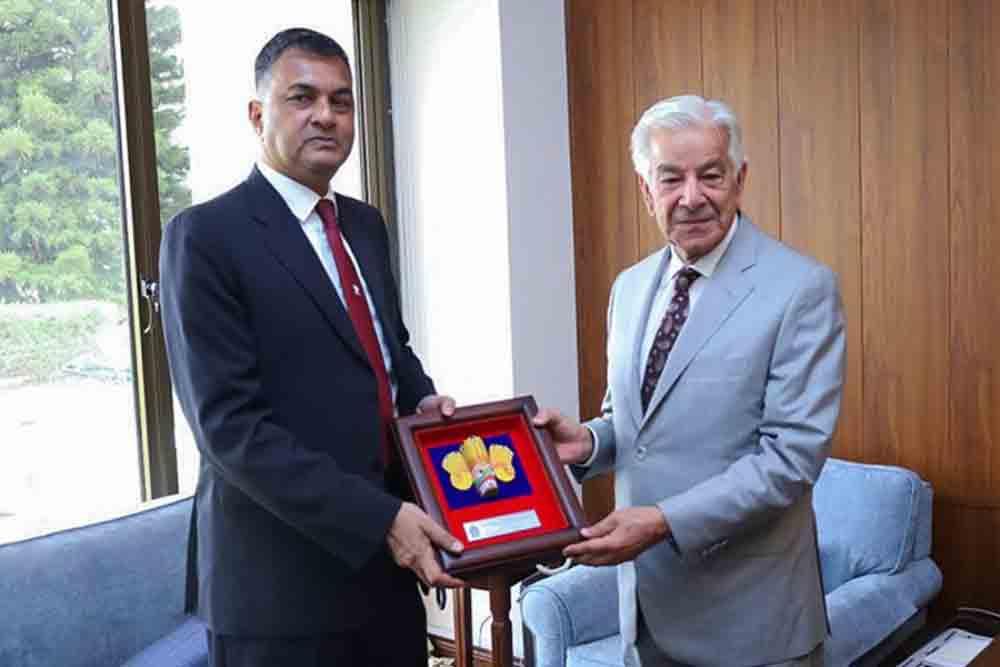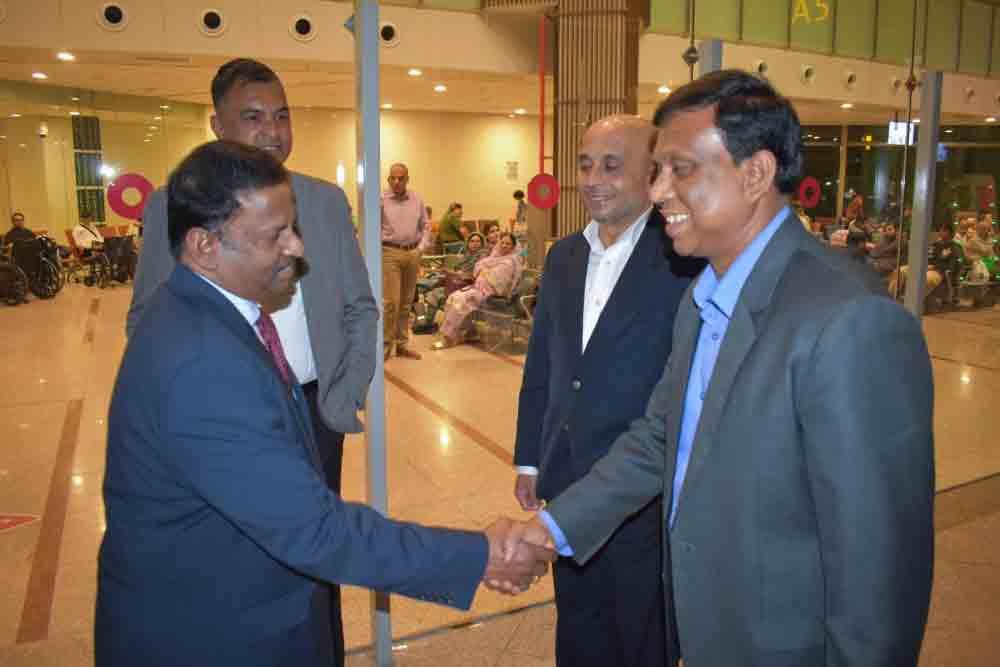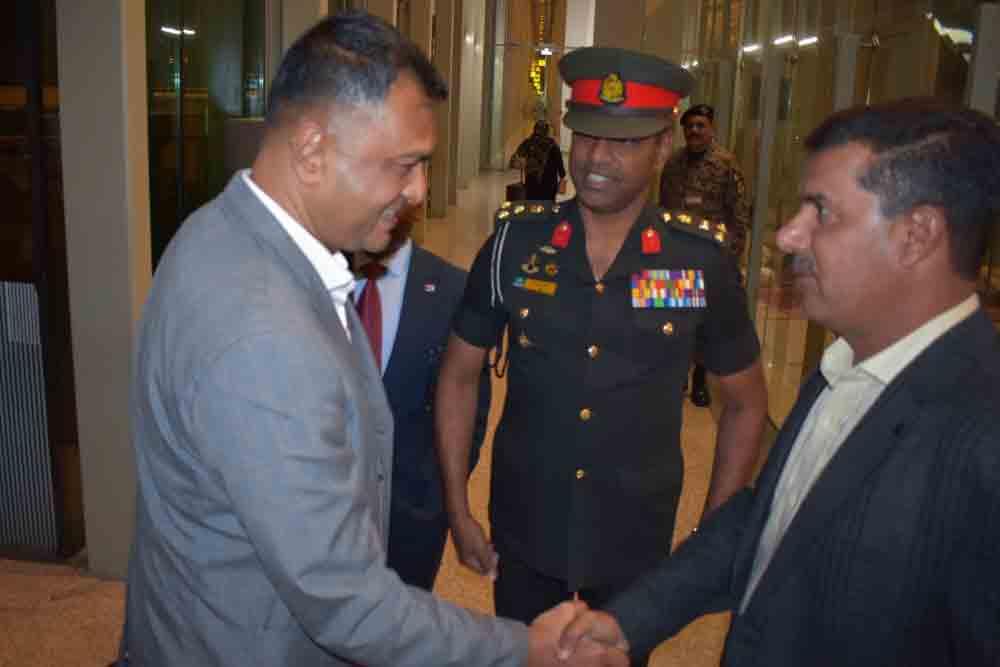Defence Secretary Air Vice Marshal Sampath Thuyacontha (Retd), currently in Pakistan for the 5th annual Sri Lanka-Pakistan Bilateral Defence Dialogue, met with Pakistan’s Defence Minister Khawaja Muhammad Asif yesterday.
According to the Ministry of Defence, the high-level talks aim to enhance bilateral cooperation, deepen mutual understanding on regional security dynamics, and explore avenues for defence collaboration.
Sri Lanka and Pakistan share a longstanding relationship built on mutual respect and strategic cooperation. The Sri Lanka-Pakistan Bilateral Defence Dialogue underscores the importance of partnerships in maintaining regional stability and promoting peace in South Asia.
The three-day defence dialogue, which began on Monday (April 28) in Islamabad, reaffirms the two nations’ commitment to strengthening defence ties. It concludes on Wednesday (April 30).
The Sri Lankan delegation is led by Defence Secretary Thuyacontha, accompanied by Navy Commander Vice Admiral Kanchana Banagoda and Additional Secretary (Defence) Jayantha Edirisinghe.
The Pakistani side is headed by Lieutenant General Muhammad Ali (Retd), Secretary Defence of Pakistan.
Also See: China Plans High-Level Visit to Sri Lanka to Revive Trade Talks and FTA Negotiations



This news is sourced from Daily Mirror and is intended for informational purposes only.

![Sri Lanka, Pakistan hold 5th Defence Dialogue in Islamabad to boost ties, regional security, and defence cooperation. [Image via The Daily Mirror]](https://southasiatimes.org/wp-content/uploads/2025/04/image_dc499a4e30.webp)




![Prime Minister Narendra Modi with External Affairs Minister S. Jaishankar at an official event. [Photo Courtesy: Praveen Jain via The Print].](https://southasiatimes.org/wp-content/uploads/2026/02/20-scaled-e1755601883425-1024x576-1.webp)